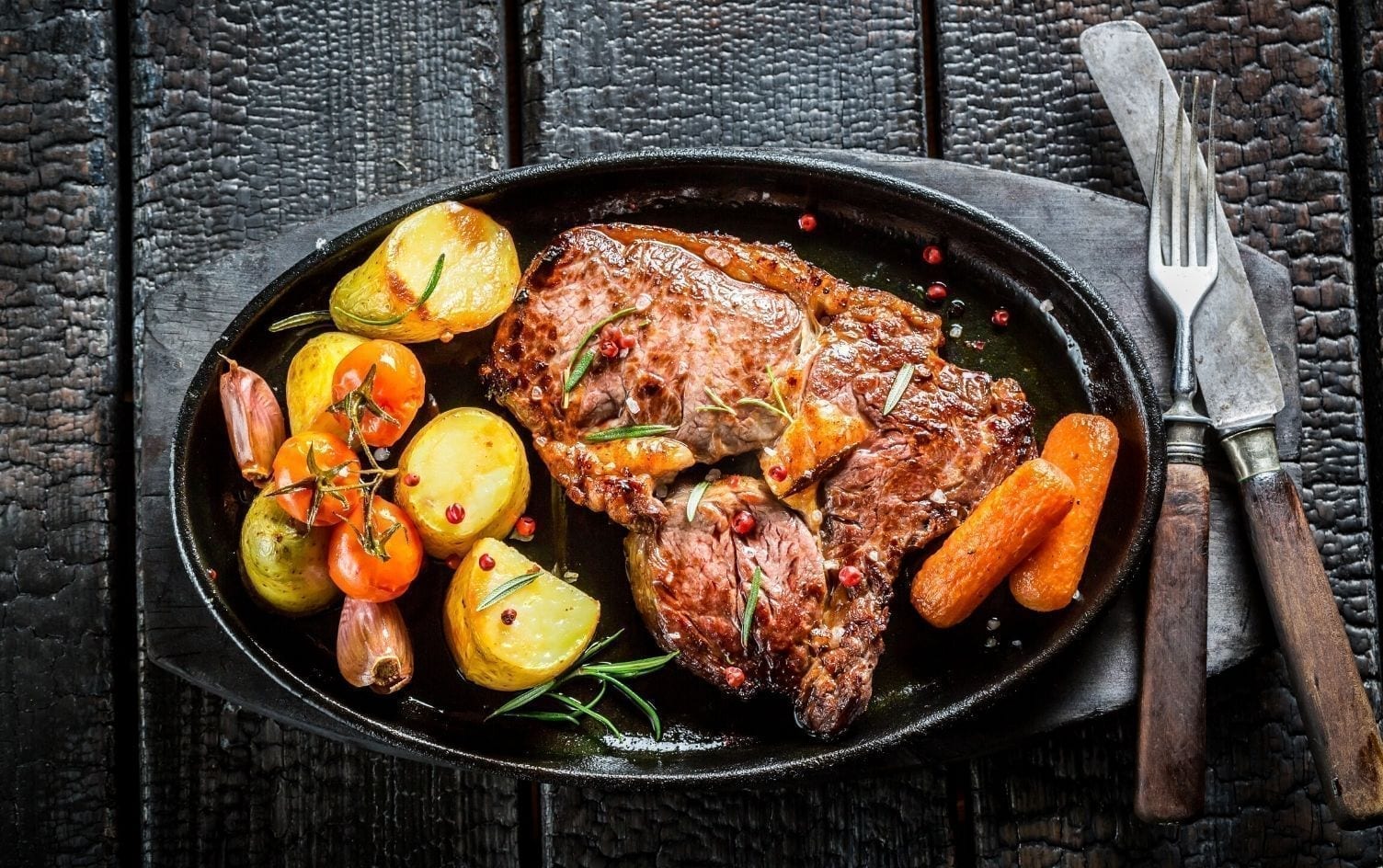Protein is an essential component to every single cell in our body — it plays a huge part in everything from tissue growth and repair to DNA synthesis, cellular transport, building antibodies, muscle building and more. Exactly how much protein we need and how much our bodies absorb varies depending on factors such as age, body composition, sex, health and activity level.
IS THERE SUCH A THING AS TOO MUCH PROTEIN?
We do know: There can be too much of a good thing, and more isn’t always better. Once our tissues take in all of the amino acids they need, they have no use for the excess. Unlike carbohydrates, which get stored away as glycogen in the liver and muscle cells for later use, protein doesn’t have its own personal storage unit; excess protein is stored as fat, while excess amino acids are flushed out and down the toilet.
HOW MUCH PROTEIN SHOULD YOU AIM FOR IN A DAY?
According to the National Institutes of Health, the Recommended Daily Allowance (RDA) for protein intake is 1.4 to 2 grams of protein for every kilogram of their body weight each day. But they also note a healthy diet can consist of 10–35% protein.
Someone engaged in a lot of exercise or heavy weightlifting requires more protein than a teenager who doesn’t exercise. That’s why it’s helpful to use an app like MyFitnessPal, where you can plug in your health information and receive an individualized recommendation or speak with a registered dietitian if you’re unsure.
WHY YOU SHOULD SPREAD OUT YOUR PROTEIN INTAKE
According to science, we absorb 25–35 grams of protein per meal. Thus, it’s more beneficial to spread our protein intake throughout the day rather than trying to consume a majority at one meal.
Here are a couple of sample meals that include up to 35 grams of protein:
BREAKFAST
- 1 cup (150g) Greek yogurt with 2 tablespoons almond butter (23g protein)
- Protein-Packed Breakfast Burritos (27g protein)
- 1 cup (150g) cottage cheese with 1/2 cup (75g) blueberries (26g protein)
- Smoked Salmon Scrambled Eggs (24g protein)
LUNCH
- Deli Box (27g protein)
- Greek Salad With 4-ounces of Grilled Chicken (31g protein)
- Egg and Avocado Lettuce Wraps (25g protein)
- Chicken Salad on a Whole-Grain Wrap (25g protein)
DINNER
- Spicy Chicken Burger With Sweet Potato Fries (35g protein)
- Mac and Cheese With Chicken and Kale (30g protein)
- Shrimp Burrito Bowl (34g protein)
DOES NUTRIENT TIMING MATTER?
For most, spacing protein out somewhat evenly between meals and snacks ensures your body has access to the appropriate amino acids needed for optimal performance and exercise, as well as muscle building and recovery.
If weight loss is your goal, protein is very important for regulating blood sugar levels and keeping you satiated. It may also benefit you to eat more in the morning (35g) for better appetite control throughout the day.
If you are an athlete or heavy exerciser, the International Society of Sports Nutrition recommends eating high-quality protein within three hours of a workout to increase muscle growth and synthesis.
THE BOTTOM LINE
Regardless of your goal or lifestyle, opt for quality, whole-food based proteins from a variety of sources including eggs, seafood and plant-based proteins (like nuts, legumes and seeds) in addition to lean meats like chicken and turkey.
Originally published December 2019, updated August 2023
Ready to take the next step? Unlock MyFitnessPal Premium to access custom goal settings, quick-log recipes, and guided plans from a registered dietitian. Premium users are 65% more likely to reach their weight loss goals!




